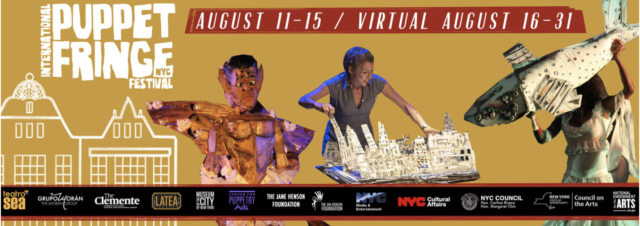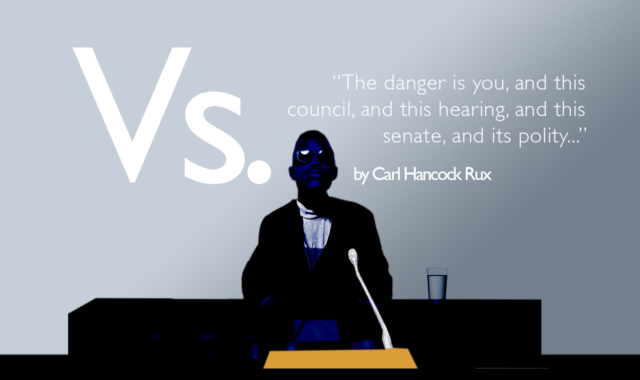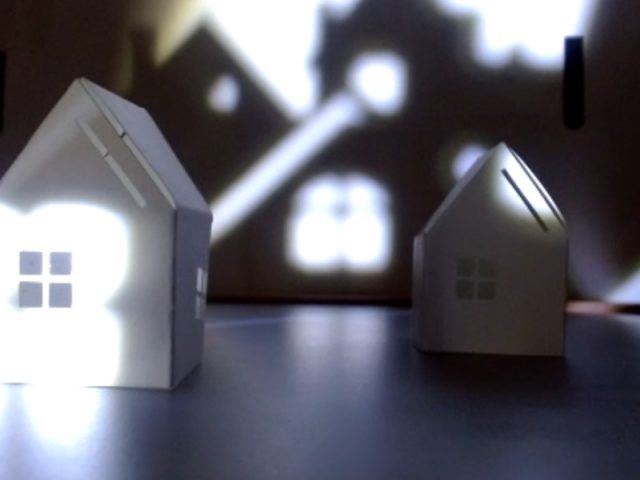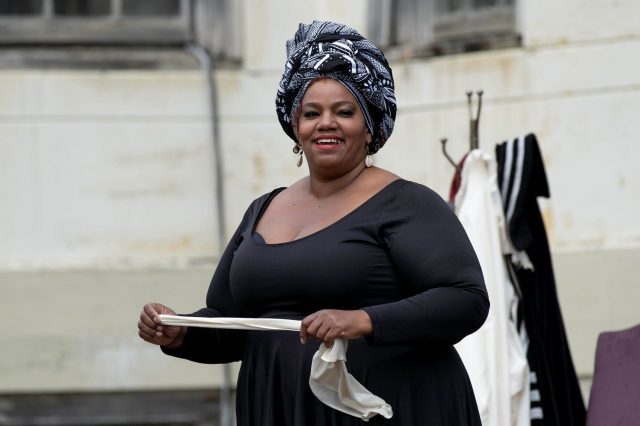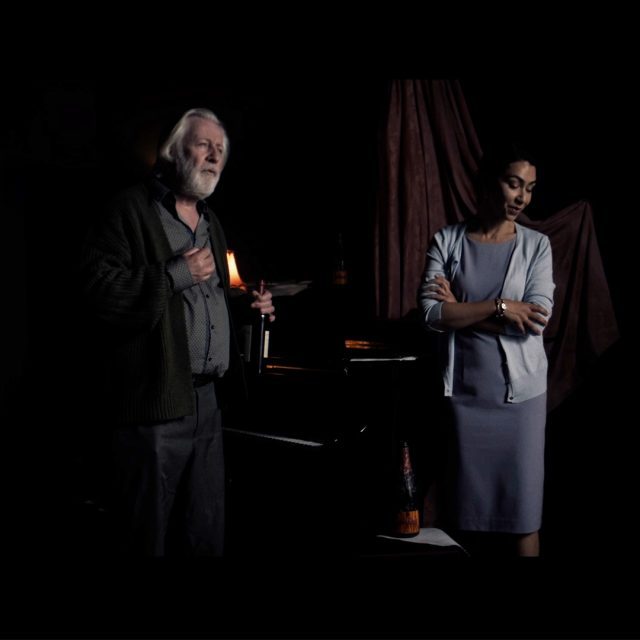
Here Is Future takes place in a mobile container for one actor and one audience member at a time (photo by twi-ny/mdr)
HERE IS FUTURE
Manhattan West Plaza
395 Ninth Ave. between 31st & 33rd Sts.
Thursday – Sunday through August 22, 1:00 – 7:00; free tickets available Monday mornings at 10:00
theatreforone.com
During the pandemic lockdown, Theatre for One’s Here We Are was my lifeline to live theater. On Thursday nights in October, TFO presented eight free online microplays written, directed, and performed by BIPOC women (with one exception), short works in which the solo actor and solo audience member both have their camera and audio on, able to see and hear one another. There was even a virtual lobby where people could type in their thoughts as they waited for shows to begin.
In the “before time,” pre-Covid 19, TFO performed its intimate works in a mobile four-by-eight-foot repurposed equipment container. Now TFO artistic director Christine Jones has gone back to the setting they originally used for the project to bring us Here Is Future, six new microplays between five and ten minutes each in which one actor performs for one audience member, seated on either side of the container, separated by a plexiglass sheet. Free tickets become available Monday mornings at 10:00 for that week’s performances, so you need to book them quick.
Several Here We Are creators are back for this follow-up, which takes place in the Manhattan West plaza on Ninth Ave. past the new Penn Station and is focused on where we go from here. The program consists of Jaclyn Backhaus’s The Curse, directed by Rebecca Martinez and starring Angel Desai; Lydia R. Diamond’s Turtle Turtle and That Which We Keep Telling Ourselves Is Over Now, directed by Tiffany Nichole Greene and starring Gillian Glasco; DeLanna Studi’s The Golda Project, directed by Martinez and starring Tanis Pareneau; korde arrington tuttle’s the love vibration, directed by SRĐA and starring Denise Manning; Stacey Rose’s Gravita 4 Para 0, directed by Greene and starring Joanie Anderson or Myxy Tyler; and Regina Taylor’s The Transformed Returns, directed by Taylor and starring Lizan Mitchell. The costumes are by Hahnji Jang, with lighting and sound by Josh Higgason.
I’ve seen four of the plays so far, and they were all poignant and moving. In The Transformed Returns, Mitchell portrays a grandmother dealing with the coronavirus crisis, desperate to squeeze the cheeks of her new grandchild, whom she cannot visit in person, while dealing with relatives who refuse to get vaccinated. The play begins with Mitchell sanitizing her side of the container, reminding us of what we’re still going through. (The insides of the container are thoroughly cleaned after each performance.)
Anderson is spectacular in Gravita 4 Para 0, in which the container is set up like a waiting room in a clinic, actor and audience member sitting side-by-side (separated by the glass), facing the same direction. She plays a woman from a large family who engages you in conversation, nervously talking about her history with parents, siblings, lovers, and abortions. She is so convincing that you’ll feel like you know her, and care about her, when it’s over.
In Turtle Turtle and That Which We Keep Telling Ourselves Is Over Now, you’re sitting at a table opposite a frenetic recent divorcée (superbly portrayed by an intoxicating Glasco) who is both anxious and excited to be finally going on an in-person date during the pandemic. Glasco positively glows as her character worries about allergies and Covid-19.
And in The Curse, Desai is engaging as a woman who believes terrible things have been happening to her and everyone around her because she is cursed — and she’s concerned for you too.
Produced by Octopus Theatricals and presented by Arts Brookfield, Here Is Future runs through August 22; walk-up slots are available on a first-come, first-served basis if there are no-shows. Masks are required of the audience, but the performers will be unmasked. Even in this rather small venue, it’s great to be experiencing live theater again, especially at this high quality, and for free. Sign up and see as many of the plays as you can, a terrific prelude to the upcoming fall theater season.
